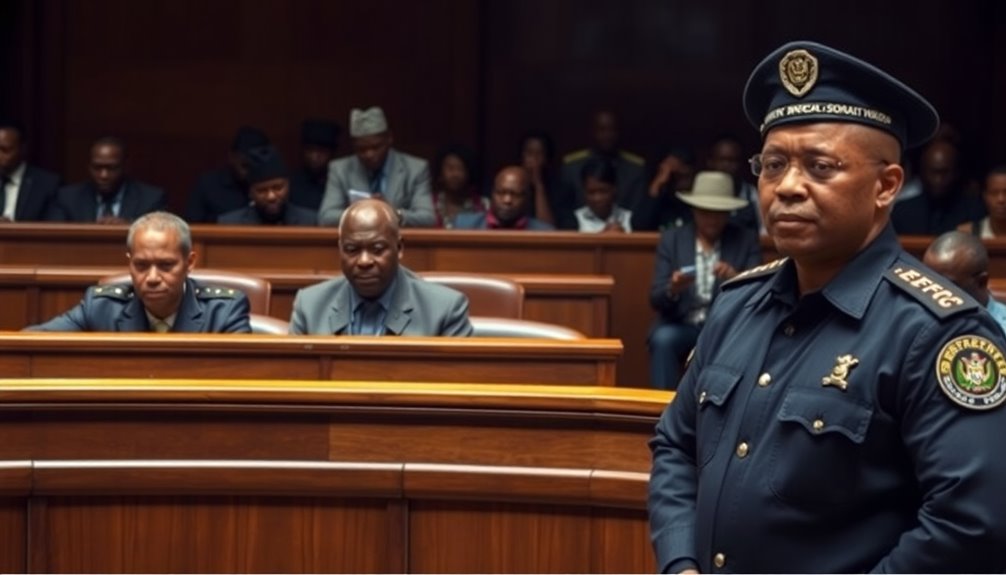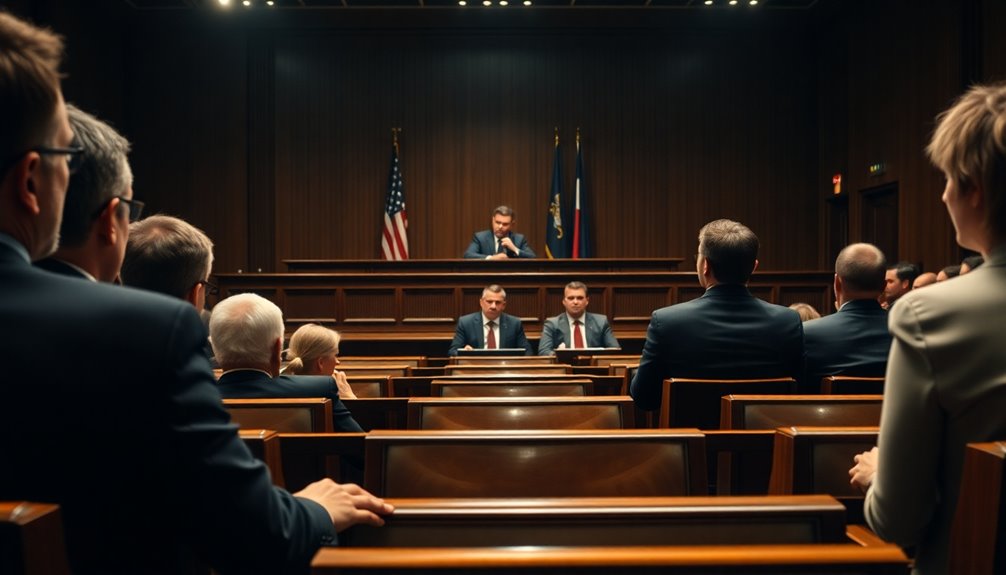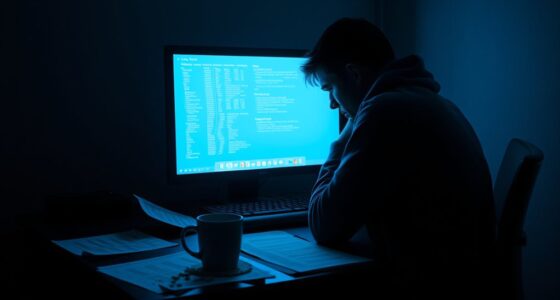
The Economic and Financial Crimes Commission (EFCC) is prosecuting three individuals—two Chinese nationals, Huang Haoyu and An Hongxu, along with a Nigerian, Audu Friday—on serious charges of cyber-terrorism, money laundering, and computer-related offences. The case, heard at the Federal High Court in Ikoyi, Lagos, pits these defendants against 11 counts, including conspiracy and unlawful retention of funds, all amounting to a staggering N3,407,824,740.78 and $2,562,203.
The EFCC prosecutes three individuals for cyber-terrorism and money laundering, involving over N3.4 billion and $2.5 million.
You’ll find that the allegations against these individuals are grave. They stand accused of conspiring to destabilize Nigeria’s economic and social structures through cyber-terrorism. Their methods allegedly involve cryptocurrency investments and romance fraud, which are increasingly prevalent in the digital age.
The EFCC claims that they set up a company, Genting International Co. Ltd., to facilitate their money-laundering activities. Audu Friday allegedly incorporated this firm on Huang Haoyu’s instructions, with the aim of hiding illicit proceeds in a Union Bank account.
The investigation, dubbed the “Eagle Flush Operation,” led to the arrest of these defendants on December 19, 2024, alongside 792 other suspects in Lagos. This operation underscores the EFCC’s commitment to tackling cybercrime, which has become a significant threat to Nigeria’s economy and reflects Nigeria’s crackdown on cybercrime.
The defendants have pleaded not guilty, and the prosecution is pushing for a swift trial while they remain in EFCC custody. The court has adjourned for a bail application hearing, but the ramifications of this case extend far beyond the courtroom.
You should also note the international dimension of this case. With Chinese and Nigerian nationals involved, it demonstrates the complexities of modern cybercrime and the need for cooperation between countries. Notorious figures like Duliang Pan, who remains at large, highlight the cross-border nature of these crimes.
The situation not only raises concerns about economic stability but also about the social impacts of such fraud schemes. This case is expected to set a legal precedent for future cybercrime cases in Nigeria, showcasing the country’s determination to combat these issues.
It reflects a broader commitment to enhancing laws and enforcement strategies against cyber-related crimes, which could have lasting implications for both legislative frameworks and international collaborations. As this trial unfolds, you’ll witness a crucial moment in Nigeria’s fight against cybercrime.









